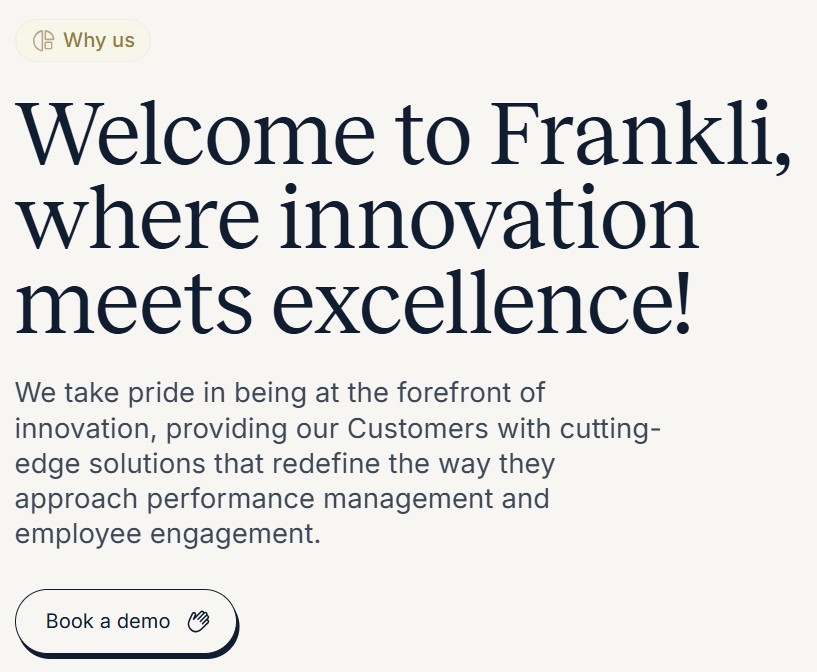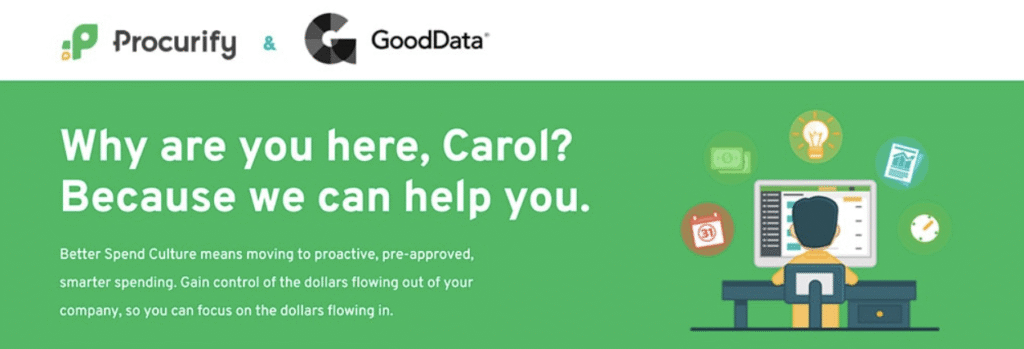Let’s be honest: when was the last time you clicked on a “Why Us” page?

If you’re like most people, probably… never. Or maybe once, by mistake.
Still, these pages are everywhere. “Why [Company Name]?” proudly sitting in the top menu of B2B websites, next to “Pricing” or “About,” waiting patiently for someone to care. But here’s the thing: most of the time, they’re just full of buzzwords like “innovation,” “customer-centric,” and “trusted by industry leaders.”
So, do we really need a “Why Us” page? Or is it just something companies add because they saw it on their competitor’s site?
Why do some companies actually need one?
Let’s give some credit where it’s due. A “Why Us” page is not always a waste of space. In some cases, it can actually do a great job — if it answers a real question that’s in the customer’s mind.
Here are a few good reasons to keep it:
You’re in a crowded market
If your offer is “yet another project management tool” or “a conversational AI platform” (hey, I know some), then the question “why should I choose you?” is probably the first thing users think about — right after “I’ve already seen three tools like this today.”

A smart “Why Us” page can show your unique positioning, your values or your secret sauce. Something that makes you more than just the 27th tab open in their browser.
Your product is complex or technical
Let’s say your solution is not easy to explain in 2 sentences. Maybe it needs a bit of background, credibility, or trust-building.

Here, a “Why Us” page can give context: your experience, your results, your mission. Not the fluffy mission like “we empower innovation,” but the one that actually matters for your user.
You’re selling to companies, not individuals
When it’s B2B, and when the decision involves 10 managers, 1 intern and 2 coffee meetings, people will look for content they can forward internally.

A good “Why Us” page becomes your internal sales ally. It helps someone defend the choice of your company in front of a boss or a procurement person who doesn’t care about design, just wants to reduce risk.
You’re doing Account-Based Marketing (ABM)
If you’re personalizing the journey for a few key accounts, this page can become a landing place where you explain exactly why your company is the right fit for them.

In that case, it’s not a generic page anymore — it’s part of the experience.
So yes, sometimes it’s a great idea. But (you guessed it), not always.
Let’s now see when it just becomes a polite way to say nothing.
When it’s just digital furniture…
Now let’s talk about the other side — the sad, dusty “Why Us” pages that nobody reads and nobody remembers. You know the ones. They sound like they were written by ChatGPT in a hurry (don’t worry, not me) – but are sometimes the results of months of meetings and teamwork… spent in pure loss.
You have nothing clear to say
If your “Why Us” page says things like…
- “we go the extra mile”
- “we put the customer first”
- “we deliver excellence”
… that’s not a reason to choose you. That’s just fluff.
If you can’t write one specific, real reason to pick your company — don’t make a page just to say generalities. It won’t help anyone, not even your SEO.
You already answered the question somewhere else
Many websites already explain “why us” on the homepage, inside the About page, in case studies, or even on the pricing page. And that’s totally fine.
If your value prop is clear and repeated naturally through your site, you don’t need to isolate it in one lonely menu item like it’s in timeout.
You’re a one-person business or a small brand
Let’s be honest: if your name is on the invoice, people are choosing you, not “your brand.”
In that case, a personal About page with your story, your values, and a nice photo of you with a coffee (bonus points if it’s in black and white) is much more convincing than a cold, generic “Why Us” page.
It adds confusion to the user journey
The more items you have in your menu, the harder it is to focus. Every click is a choice — and if you give 10 similar choices, most people just leave:

If your user already has “Features,” “Solutions,” “Use cases,” and “About”… maybe “Why Us” is not helping. It’s just noise.
So yes, in many cases, it’s not only unnecessary — it’s actually harmful for user experience.
Don’t add a page just because your competitors have it. Most of them are not even sure why it’s there either.
So, do you need a “Why Us” page?
Well… maybe.
But only if it answers a real question your prospect is already asking. Only if it adds something useful to the journey. Only if it brings clarity, not confusion.
My take? The “Why Us” question must be answered somewhere — that’s non-negotiable. But it doesn’t always need its own menu item or a separate page. If your homepage does the job, great. If your About page covers it, perfect. But if nowhere on your site explains what makes you different and why you’re worth their time, then yes — go ahead and build one.
Just make sure it’s not another vague mix of buzzwords and empty promises. I’ve seen so many of those… they don’t convert. They don’t build trust. Worse, they actually generate more questions than answers in the mind of your prospect.
And when that happens, you’re not helping — you’re making it harder to choose you.
So yeah, better no page than a bad one.
If you’re not ready to make it great, keep it out of the menu. Your future customers will thank you.

Comments